This article is more than 1 year old
Sneaky Google KOs 'right to be forgotten' from search results
Down the memory hole: Chocolate Factory Orwells itself
Google has never liked privacy laws, and it really hated Europe’s “Right to be Forgotten” ruling in 2014.
The RTBF ruling gave private citizens the right to ask for the removal of search entries that contained personal information that was old and irrelevant, for which there was no public interest. It was a privilege previously only affordable to the wealthy.
The court ruled that a dominant search engine was perpetually publishing the same stuff, and if the information, such as a news story about a teenage indiscretion, was irrelevant, this breached one’s human rights.
But Google howled and sympathetic academics and poorly informed media luvvies joined in. Information would disappear, just like in George Orwell’s Nineteen Eighty Four! It was like removing the index cards from the library – nobody would ever find anything ever again!
Well, one day El Reg’s production desk was idly Googling some background to the RTBF and found this oddity.
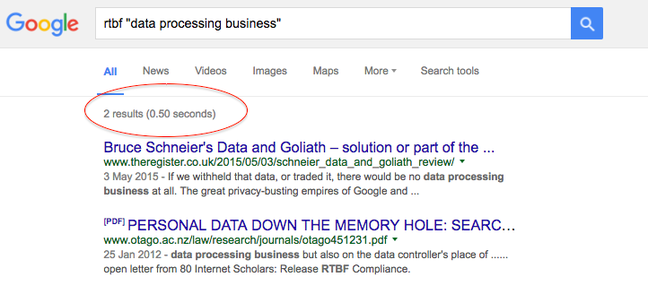
Just two entries. Here's Bing's results for the same string:
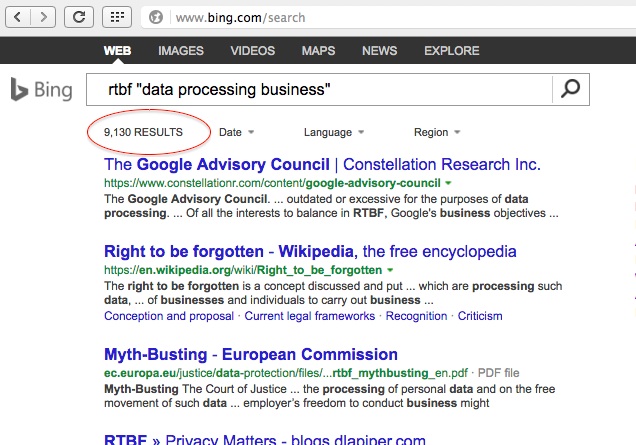
Google has made the RTBF disappear. Down the memory hole.
You might almost call that Orwellian.
For completeness, here's Yahoo!'s attempt:
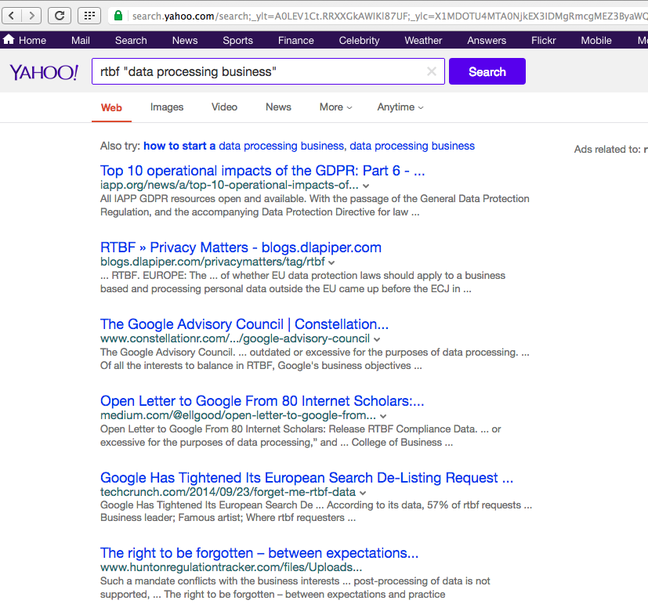
But don't bother with Google-scraping search engine DuckDuckGo.
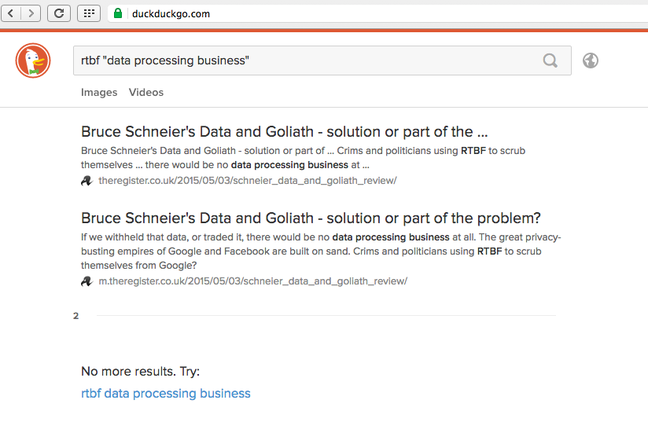
And don't even think about Asking Jeeves...
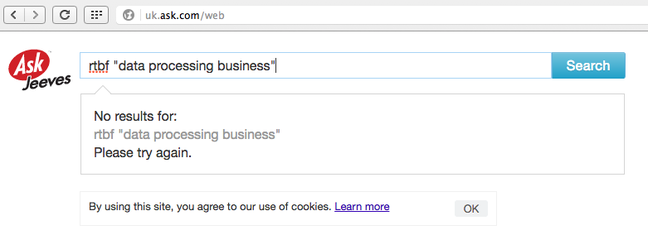
Google hates being called a "data processing business", perhaps even more than it hates the so-called RTBF.
There’s a very live question here. If you accept at face value that Google’s archive is of such social importance that it should be placed above privacy laws, then you can’t have your cake and eat it. That gives it a particular responsibility not to make stuff disappear. Such as ... stuff it doesn't like.
Future generations will surely find the whole RTBF controversy odd. Why would any mature society trust its digital archive to a Californian consumer data processing corporation that sold ads. Did you poison all your own librarians and archivists? Or just forget how to build things? ®
Bootnote
Vulture Central's backroom gremlins tested quite a few permutations of the search string, having stumbled upon the original while refreshing our memory of the case. It's quite odd that only the specific string rtbf "data processing business" turns up so few results, while searches without the delimiting quote marks produce thousands.
Or is it? Google's defence in the RTBF trial was that it was a mere "data processing company". Of the two links that the search string turns up through Google, one is to an undergraduate law dissertation broadly siding with Google and asserting that a judgment against it would be A Bad Thing. The other result's highlighting of a specific passage from a Reg book review could be read as implying that RTBF would lead to the downfall of the Chocolate Factory.
What actually happened after the RTBF judgment? Google put a "we're being censored!" note on the bottom of search results for names, spun the press for a while ... and people carried on merrily Googling away anyway. And it was revealed earlier this week that of every $1 spent on advertising in the first quarter of this year, $0.85 goes to Facebook and ... Google.
